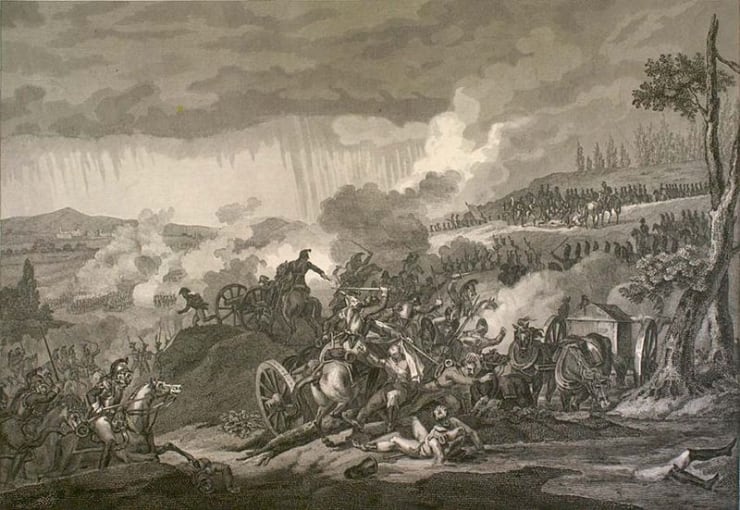krása
27.8. 1813 Battle of Dresden
Categories: Years of war and revolution , Calendar

During the campaign through Germany, Napoleon's troops also clashed with the enemy at Dresden. The clash lasted for two days on 26 and 27 August 1813. France won, losing ten thousand men.
Another ten thousand were wounded. The enemy's casualties amounted to fifteen thousand dead, fifteen thousand wounded, and twenty thousand soldiers captured.
The clash was preceded by a meeting at the end of July 1813, when Habsburg Austria joined the side of the anti-Apoleonic allies. It was then, during Napoleon's armistice with Prussia and Austria, that the French commander met the Austrian diplomat and politician Klemens Wenzel von Metternich. Austria's subsequent actions were not long in coming. In August, it declared war on France.
"Prince Schwarzenberg set out for Paris in April 1813 , but his negotiations ended in failure just as the subsequent negotiations with Napoleon at Drazdan and Prague. The war was inevitable," says the Czech Historical Magazine.
At the time, the French army was just outside Dresden, so Marshal Gouvion de Saint-Cyr ordered the immediate construction of fortifications around this German city. An enemy force of about 200,000 men arrived there on August 24, preparing to attack. The so-called Bohemian army was led by Field Marshal Charles I Philip of Schwarzenberg.
"The starving soldiers began to pillage the villages around Dresden. Unlike the early days of the autumn campaign of 1813, Napoleon had more accurate information about the strength of Schwarzenberg's army, at least by the end of August. It was obvious that the Czech army was the main Allied force," writes Milan Švankmajer in Bohemia at the End of the Napoleonic Wars.
In addition, the Allies also had the support of England. Napoleon had 90,000 soldiers at his disposal in the battle, but his opponent had 150,000. Clashes between soldiers of both sides occurred mainly in the southern suburbs of Dresden. And because the Allies waited to attack as such, Napoleon had time to increase his forces and take control of the defensive works in the city.
Despite their initial superiority, the Allies eventually suffered a heavy debacle from Napoleon. He claimed victory on August 27, 1813, when he surprised the invaders with heavy cannon fire. An army corps under General Dominique Joseph Vandamme pursued the Russians across the Ore Mountains into Bohemia.
Sources:
Milan Švankmajer, Bohemia at the End of the Napoleonic Wars
www.wikipedia.org
Czech Historical Magazine
The article is included in categories:



